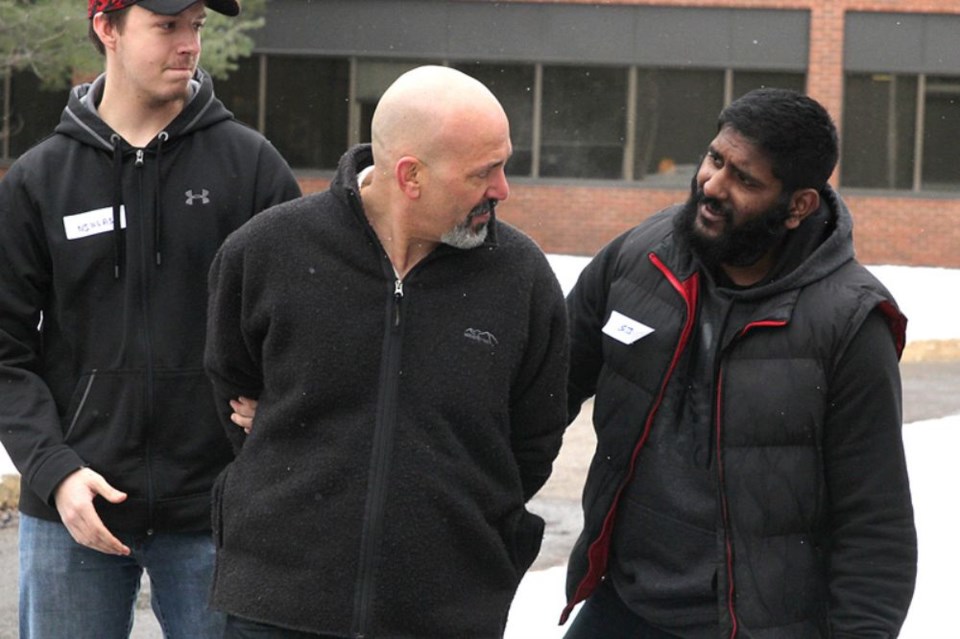When investigating a homicide, police can’t leave anything to chance.
One missed step could lead to the entire case unraveling, evidence not logged or potential witnesses not being interviewed.
On Wednesday Confederation College students in the police foundation class got a hands-on taste of the reality of a murder scene, taking part in a morning simulation that involved taking down a suspect, tracking down witnesses, and for good measure, breaking up a drug ring on campus.
Better to learn the ins and outs of conducting an investigation now, than missing up when they’re hired to serve and protect as police officers, said second-year student Mike Boyechko.
It certainly taught him he still had plenty to learn.
“We learn from our mistakes,” he said.
It’s first-hand experience and practical learning, he added.
“It really gives you first-hand insight on what your future career holds.”
Not surprisingly, there were areas he learned he could improve on.
“It was a very eye-opening experience. I think something I had trouble with today was the proper way to seize evidence. But everything else did go smoothly.”
Classmate Georgia House said she learned the importance of communication, adding it was a pretty intense morning.
“You need to speak to the other people you’re working with. There was one point where there was a bit of evidence that tied the accused directly to the scene. I didn’t have the information to know that at the time,” House said.
“Eventually my partner said, ‘Well, I actually found this on him and it directly connects him to this.’
It’s good preparation for the road ahead.
“You never know what’s going to happen, but it does prepare you for that because you’re stressed. There’s a rush. As soon as you get the call and you’re heading there, you really don’t know what to expect,” she said.
“You could be called to something and it could turn out to be something entirely different. It really does give you a great respect for the people that do it.”
Program co-ordinator Rob Lyon helped create the simulation, which he said took months and involved mentors and student actors.
“Hopefully an arrest will be made and some charges will be laid. But that’s the tip of the iceberg. The reports start after that. They prepare what’s called a crown brief for the prosecutor and then they present that brief at a mock court at the end of the semester,” Lyon said.
“So this is just the beginning of a pretty complicated exercise for the students.”
Practical learning is important, he added.
“Mistakes made here are forgivable. Mistakes made in the real world aren’t necessarily forgivable.”
Sign in or register
- Messages
- Post a Listing
- Your Listings
- Your Profile
- Your Subscriptions
- Your Likes
- Your Business
- Support Local News
- Payment History
Registered Users
Already have an account?
New Users
Create a free account.
